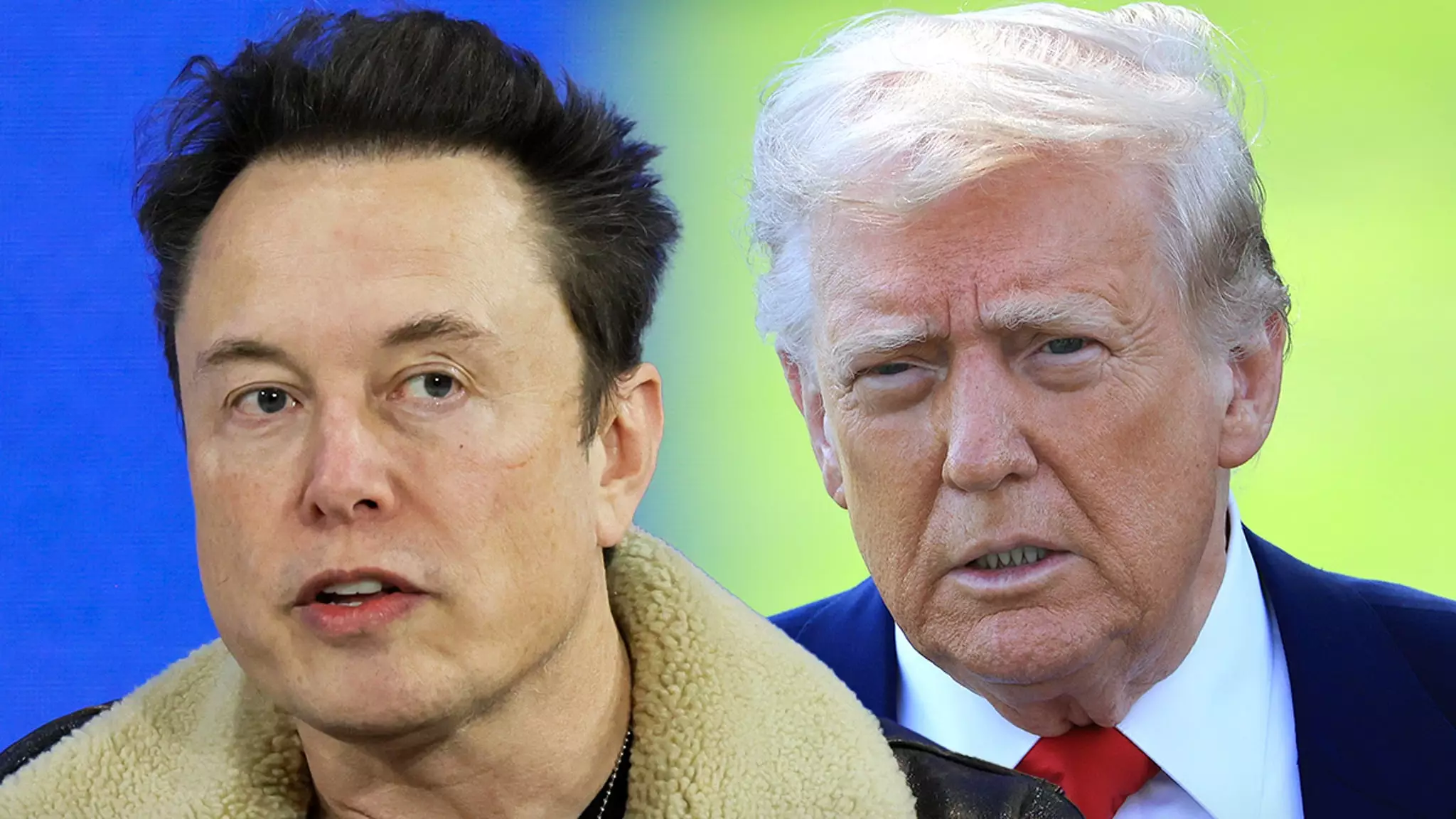Elon Musk, long known for his audacious statements and unpredictability, stirred a hornet’s nest when he suggested that former President Donald Trump’s name was tucked away in the Jeffrey Epstein files. This claim sent shockwaves across social media platforms, igniting debates and discussions at every digital corner. However, in a curious twist, Musk retracted his bold tweet within days, leaving many to speculate whether he regretted the audacity of his assertions or simply succumbed to public backlash.
Musk’s logic behind the controversial tweet seems to be rooted in his perceived connection to the powerful elite, a group that Epstein had notorious ties to. This insinuation intertwines personal reputations with broader narratives about secrecy and conspiracy. But what’s more alarming is the lack of concrete evidence to support such grave allegations. The subsequent deletion of Musk’s tweet could signify more than just an attempt to maintain social decorum; it may reflect the complex web of influence and consequence in the age of social media.
The Response from Trump’s Camp
In stark contrast to Musk’s dramatic claim, Trump’s legal representatives have made it abundantly clear that there is no tangible evidence linking him to Epstein’s nefarious activities. Pam Bondi, Trump’s attorney-general, released information that dismissed Musk’s assertion, highlighting a clean slate devoid of scandal. This revelation serves as a reminder of the overarching need for accountability in accusations, especially when they come from high-profile figures like Musk, who holds significant sway over public discourse.
Interestingly, David Schoen, a lawyer who formerly represented Epstein, echoed this sentiment by asserting that Epstein had no damaging information regarding Trump. The stark contrast between Musk’s implication and Schoen’s defense sheds light on how unsubstantiated rumors can distort public perception and trigger unwarranted chaos. Yet, Musk’s attempt to elevate the drama hints at a deeper yearning for relevance in a rapidly shifting political landscape.
The Rift: Implications for Business and Politics
The rising enmity between Musk and Trump offers a vivid illustration of how personal relationships can be strained under the spotlight of public scrutiny. Their feud, which included threats regarding government contracts and the future of SpaceX’s services, emphasizes the fragile balance between business and politics. Both men operate in spheres where their fortunes are tightly knotted with their public personas; a misstep could prove costly.
Musk’s statement that Trump would struggle to secure the 2024 presidential election without his support not only aimed to undermine Trump’s political ambitions but also painted Musk as a pivotal player in the political arena. This power struggle embodies the dangerous intersection of celebrity and politics, where personal grievances can escalate into larger ramifications that affect public interest and corporate dealings.
In a revealing response, Trump appeared to distance himself from the backlash, conveying a sense of indifference that marked a shift in their once collaborative relationship. Expressing that he wasn’t concerned about Musk and wishing him well with Tesla illustrated a strategic retreat, perhaps indicative of Trump’s experience in navigating tumultuous public relations.
Musk’s actions and subsequent retraction illustrate the perilous landscape of public discourse where assertions can either bolster or ruin reputations within moments. As social media continues to serve as a battleground for such exchanges, the need for discernment and restraint in sharing potentially explosive claims becomes increasingly vital.

